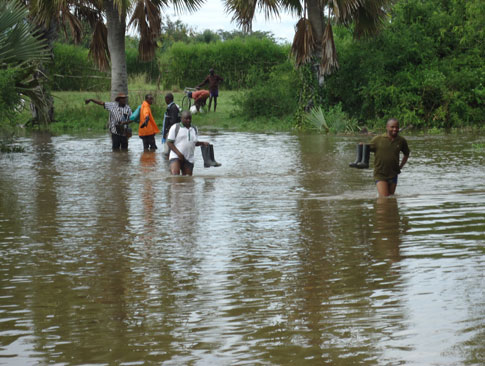WASH in Schools not only promotes hygiene and increases access to quality education but also supports national and local interventions to establish equitable, sustainable access to safe water and basic sanitation services in schools. Menstrual Hygiene Management (MHM) is crucial for promoting the health, dignity, and empowerment of women and girls. This comprehensive training aims to equip participants with a deep understanding of the challenges faced by women and girls regarding menstrual hygiene, the impacts of these challenges, and the link between MHM and the Sustainable Development Goals (SDGs) and also be able to establish a balance between WASH and MHM.
Read MoreThe WASH Financing and Governance Training Workshop is a comprehensive program aimed at professionals and individuals seeking an in-depth understanding of Water, Sanitation, and Hygiene (WASH) financing and governance. Delivered by industry experts and utilizing cutting-edge resources, this training goes beyond the basics to explore intricacies in WASH policies framework, WASH systems strengthening, and WASH financing and processes.
Read MoreThis workshop aims to provide participants with a comprehensive understanding of Geographic Information Systems (GIS) and Data Analysis techniques specifically tailored for Water, Sanitation, and Hygiene (WASH) projects. The training will cover both theoretical concepts and practical applications of GIS tools, focusing on industry-standard software like ArcGIS and QGIS.
Read MoreThis course aims to provide a comprehensive understanding of the importance of Gender, Equality,
Disability and Social Inclusion (GEDSI) in the Water, Sanitation, and Hygiene (WASH) sector. The
course will cover key concepts in GEDSI, universal markers of marginalization in the context of WASH,
and barrier analysis. Participants will also learn about inclusive WASH and how to design and implement
WASH interventions that promote gender equality, disability inclusion, and social inclusion.
This training workshop is designed to equip participants with practical knowledge and skills in
implementing Hygiene Promotion using various Community-Based Approaches. The focus will be on
seven essential WASH tools, including SARAR, PRA, PHAST, CLTS, CHAST, CtC, and CHC. Participants will
engage in interactive sessions, case studies, and practical exercises to enhance their understanding and
application of these tools in different contexts.
This Sustainable Rural and Urban WASH Planning Training Workshop delves into the intricacies of
Sustainable Water, Sanitation, and Hygiene (WASH) planning in both rural and urban settings. It
emphasizes advanced strategies and frameworks to achieve sustainability, resilience, and inclusivity in
WASH programs. Participants will gain a deep understanding of the Sustainable WASH Model and its
application in diverse environments.
This workshop is designed to equip participants with the knowledge and skills needed to implement
effective Water, Sanitation, and Hygiene (WASH) practices in healthcare settings during emergencies.
The training will cover foundational principles, emergency preparedness, implementation strategies, and
considerations for specific health impacts, including communicable diseases, non-communicable diseases,
maternal, newborn, child, adolescent health, gender, and Persons Living With Disabilities (PLWD) health.
WASH is not only a prerequisite to health but contributes to the improvement of livelihoods, school attendance and dignity and helps to create resilient communities living in healthy environments. It is scary to imagine people losing their lives to circumstances that can be avoided. Do you ever ask yourself how you can implement impactful WASH projects? This course aims to equip learners with skills in Water and sanitation and be able to improve their skills in hygiene as well.
Read MoreThe Social and Behavior Change Communication training offers participants an understanding of principles and contexts of communication to convey meaning, designing and creating messages that enhance behavioural adoption and maintenance, while employing effective monitoring and evaluation of the campaigns to ensure sustained adoption.
This training course will provide participants with the practical skillsets required to apply effective communication techniques to change behaviours and promote social change by influencing knowledge, attitudes, and social norms.











